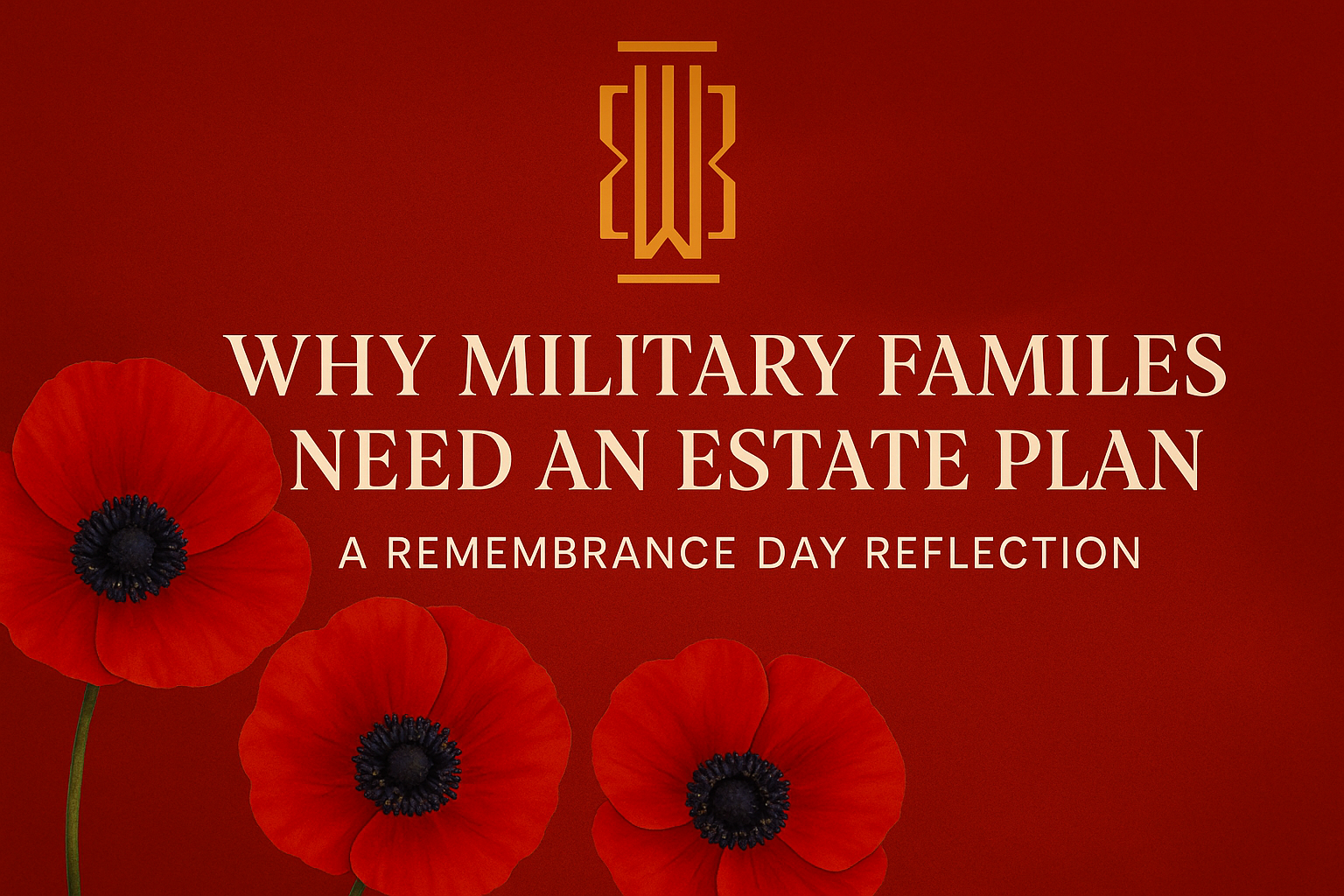Each year on Remembrance Day, we pause to honor the courage, sacrifice, and service of those who have worn the uniform.
We remember not only the fallen but also the families who stand behind them: spouses, children, and loved ones who live each day with resilience and quiet strength.
As we reflect on the meaning of service and sacrifice, it’s also a time to consider how we can protect those we love most. For military families, estate planning isn’t just a financial exercise, it’s an act of love and preparedness.
Choosing to serve one’s country is an act of extraordinary bravery and devotion. As estate and trust professionals, we have the privilege of helping military members plan for the future—ensuring their families are cared for no matter what lies ahead. Open, proactive conversations today can prevent hardship and bring peace of mind to those who sacrifice so much for others.
Tracking genealogical information for veterans presents distinctive challenges. Frequent relocations, international deployments, and variations in military documentation often complicate record tracing. Veterans may choose to do wills in different jurisdictions or even obtain assets in the place of deployment.
Military files can span multiple countries and languages, making the search for heirs or beneficiaries especially complex. Moreover, the sensitive nature of military service means certain records may be restricted or difficult to obtain. Estate professionals must navigate these challenges with care, ensuring that sensitive or potentially distressing information is handled and communicated with the utmost respect and discretion.
The Unique Challenges of Military Life
Military life is marked by frequent moves, deployments, and uncertainty. Service members often face the reality of danger more directly than most, and their families must be ready for unexpected changes. These circumstances make having a clear, legally sound estate plan absolutely essential.
Without one, families can face legal complications, financial strain, or confusion at a time when they need stability the most.
What an Estate Plan Provides
-
Peace of Mind: Knowing that your wishes are documented and your loved ones are cared for can ease the mental burden during service and deployment.
-
Clarity in Crisis: An estate plan ensures that important decisions—about guardianship, finances, and healthcare—are made according to your values and not left to chance.
-
Protection for Dependents: Military families often have young children or dependents who need guardianship arrangements and financial provisions in place.
-
Efficient Use of Benefits: Service members have access to benefits like pensions, and survivor benefits, which should all be integrated into an estate plan.
Honoring Service Through Preparation
Creating an estate plan is a way to honor the commitment and courage that define military service. It’s not just about planning for the unexpected—it’s about ensuring that your family’s future is secure, no matter what life brings.
As we wear our poppies and observe moments of silence this Remembrance Day, let’s also reflect on how we can protect those who protect us.
A thoughtful estate plan is one more way to serve your family with the same dedication and foresight that you serve your country.
Contact our estates and probate lawyers at 416-847-1859 to discuss your estate matter.





